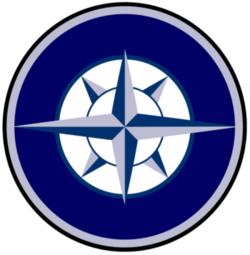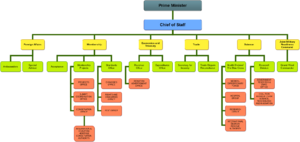International Freedom Coalition
This article is incomplete because it is pending further input from participants, or it is a work-in-progress by one author. Please comment on this article's talk page to share your input, comments and questions. Note: To contribute to this article, you may need to seek help from the author(s) of this page. |
International Freedom Coalition | |
|---|---|
| Headquarters | Kairaku, Kirishima |
| Official languages | English |
| Type | Military alliance |
Website Offical website | |
The International Freedom Coalition (IFC) is an intergovernmental organisation and military alliance formed as a result of a merger between the International Freedom Alliance and the Western Coalition. The Alliance prides itself on being a beacon of freedom for the International Community and works with a multitude of different Alliance and Nations throughout the globe. Originally based in Musrum, Bratislav, its headquarters is now located in Kairaku, Kirishima.
History
The IFC has a long storied history, spanning numerous administrations throughout the years. Administrations have seen an expansion of the powers of the Prime Minister, as well as subtractions of the same aforementioned powers. It has finalized long-standing cold as with other offers and has forged friendships throughout the globe. The future looks bright for the IFC.
Shazite Administration
After his election, the Delegate from the Empire of Shazbotdom took over as the Prime Minister of the International Freedom Coalition. During his tenure, he shrank the size of the Executive Branch of the IFC and cut the budget so that the Executive could better work under the elective monetary donations from any member states that wished to donate money. His time in office was one of peace and on the 8th of January, 2018CE, he stepped down from his position and appointed the Delegation from Guadalupador as the Interim Prime Minister of the International Freedom Coalition.
IFC Government
Executive
The Executive Branch is tasked with the day to day activities of the Alliance, including ensuring the operations of the headquarters are maintained for the representatives, enforcing the application process for perspective members, ensuring trade for all members in line with the Resolutions passed by the Council, keeping the peace with other alliances, and assisting members as needed.
- Prime Minister: Shazbotdom
- Chief of Staff: Organized States
Ministries
- Foreign Affairs: Mizrad
- Membership: Kannap
- Economics and Treasury: The Swiss Guardsmen
- Trade: Vacant
- Science: Novus Romanum Imperium
Joint Military Readiness Initiative
- Supreme Allied Commander: Guadalupador
Legislature
IFC Council
The IFC Council is made up of one representative from each of the member nations of the alliance and is the main decision making body for the alliance. Member nations may put forth a Resolution, as per procedure and using the format authorized by the Council, for any subject in which the nation feels is applicable to the Alliance. The membership will then vote on the aforementioned resolution and the Speaker or Deputy Speaker will call the vote after a set amount of days and either consider the Resolution as passed or failed.
- Speaker: Romic
- Principle Deputy Speaker: New Roma Republic
Judiciary
The judiciary is responsible for any actions as it pertains to the policies laid out within Resolution #12b.
- President in the Judicial Committee: Flardania
- Judicial Committee Members:
- United States of Devonta
- United States of Conner
Funding and budget
Funding
After the election of the Shazbotian Administration, the budget of the IFC's Executive Branch was slashed drastically with the reorganization of the government. Currently, the Shazbotdom Imperial Government supplies nearly 90% of the funding for the government. Other than the large percentage of funding given by the Shazbotdom Government, excess funding is done on a voluntary donation basis from within the membership.
Budget
The budget is simplistic for the sanity of the current and any future administrations. Each department can request increases with their budget, which the request will be looked over by the Minister of Economics and Treasuryas well as the Prime Minister and will either be approved as is, or edited and approved.
Joint Military Readiness Initiative
After Council Resolutions #34 and #35 passed, under the direction of the IFC Council, the Rapid Reaction Force was officially dissolved and succeeded by the Joint Military Readiness Initiative.
Military operations
New Austzeland intervention
The 2014 Northeastern Zolevskoy Conflict, sometimes known as the 2014 Northeastern Zolevskoy Insurgency or 3rd Zolevskoyan Civil War, is a rebellion that took place from August 9th to September 18th, between Zolevskoyan government forces and Zolevskoy National Party Rebels, during the period of significantly intensified violence in Zolevskoy. Rebel forces attacked and took over the city of Serkala at the beginning of the conflict, and continued pushing on to Vybor. The ZNP declared the territory they captured as the Zolevskoy Federal Republic. Just after the siege of Serkala, rebel forces arrived at the city of Vybor. Some days later, the Fourtese Socialist Republic declared it's support for the rebels and began fighting against government forces, after several days of bombing rebel targets.
Humanitarian operations
Membership
Members
- Acronius
- Aquilonian Confederation
- Aravea
- Argentarino
- Capisaria
- China (The Northern Chinese Provinces)
- Chkalovsk II
- Emmeria
- Ghosnia
- Gibberan
- Great Britain and Belgium
- Guadalupador
- Hatay
- Inyursta
- Isle of Lost
- Jedoria
- Kannap
- Kirishima
- Laeuwen
- Liberated Counties
- Luxdonia
- Mizrad
- N Awlins
- New Chilokver
- Imperial Republic of New Rome
- Novo Wagondia
- Ontorisa
- Organization of the Zodiac Federation
- Organized States
- Ottoman Nogay
- Palmyrion
- Patrick OConner
- Ragno
- Rentalla
- Romic
- Roski
- Sanaatria
- Skyvolia
- Shazbotdom
- SJT
- St Saratoga
- Mirevia
- The Global Republic
- The Lendol Archipelago
- The New Lowlands
- The Technocratic Syndicalists
- The Unified Isles
- The United Remnants of America
- United States of Conner
- United States Of Devonta
- Viridisolum
- Western Vale Confederacy
Observers
Objectives
- Effective joint defence
- Global peace
- Friendships with other alliances and nations

